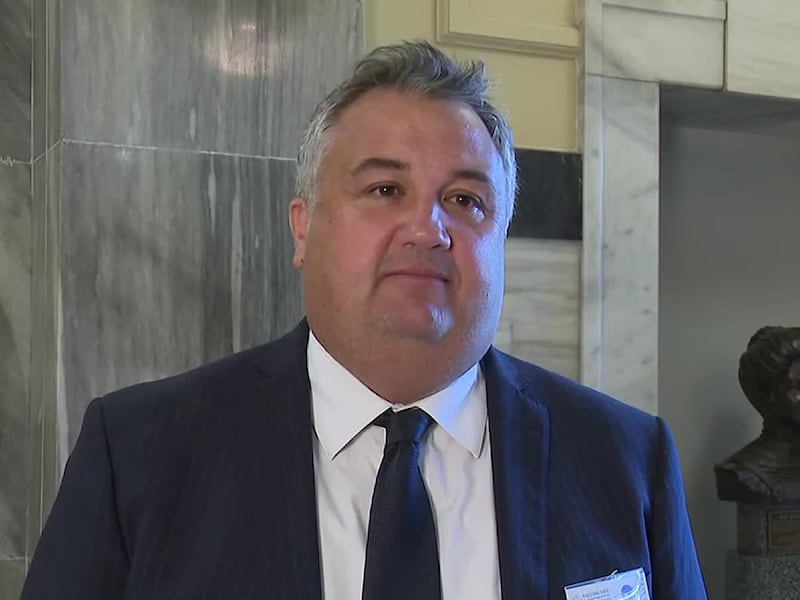Associate Health Minister David Seymour David Seymour has sent Pharmac chair Paula Bennett a letter of expectation, calling for Te Tiriti o Waitangi to stop being embedded in its drug-buying decisions.
It’s one of a set of “clear expectations” for the Pharmaceutical agency to follow, including asking for an outline of how the drug-buying agency will support the government’s health policies.
In the letter, Seymour believed that embedding Te Tiriti o Waitangi across the health sector was not an appropriate expectation to place on Pharmac.
“I have made clear the need for Pharmac to focus on delivering improved health outcomes underpinned by robust data and evidence.
“We need to ensure that the decisions around the medicine funding and access is informed by the expertise of health professionals, and on this I continue to support the independent model for medicine procurement, which ensures that Pharmac operates at an arm’s length from the Minister in its decision making, drawing on the appropriate expertise.
“My letter of expectations also makes it clear that I want Pharmac to work in partnership with consumers, clinicians, suppliers and the health sector to improve health outcomes for New Zealanders,” Seymour wrote in a statement.
The letter also contained a list of 21 expectation points, none of which related to the Treaty of Waitangi, spread across the pages

Malcolm Mulholland, chair of Patient Voice Aotearoa, approves of Seymour’s letter of expectation to Pharmac.
“Patient advocates are very pleased to see in the letter, the need to update the statutory objectives of Pharmac so that it can assist in the optimisation of health outcomes.
“This is welcome news. Within the Pae Ora legislation is already a reference to resource constraints (this includes budget) for all sectors of the public health system.
He said a major concern for patient advocates has been the focus on cost containment at Pharmac, rather than health outcomes.
“Patient advocates welcome working alongside the government and Pharmac to usher in a new era where our drug procurement agency can be vastly improved for the benefit of patients. The letter of expectations signals that era is beginning,” Mulholland said.
This year, the National-led coalition boosted Pharmac’s funding by almost $1.7 billion in the 2024 budget.
The coalition went on to add an additional consultation process that is now open to improving access to cancer and non-cancer medicines.
“I am confident that Pharmac will be able to provide what New Zealanders need, particularly now that they have been further enabled. Each time I visit Pharmac, I am struck by the capability of the people working there and the commitment to making the most out of their budget, to get the most for New Zealanders,” said Seymour.
What are Seymour’s 21 expectations?

Concerning the organisational culture:
- Partnership work is strengthened to ensure stakeholders understand how Pharmac operates, that its legitimacy, credibility, and trust is enhanced, and that all feedback and ideas are dealt with respectfully and valued.
- Priority is given to identifying and pursuing any opportunities to work collaborativelyand collectively with other entities, government and non-government, where this partnership will result in process improvements, health gains, or enable efficiencies.
- Pharmac regularly reports to me on how it is tracking in relation to organisational culture and stakeholder sentiment, and what actions are being undertaken to address any issues identified.
- Executive staff are providing the right information to enable the Board to make strategic decisions, and to undertake assessment and learning activities to improve the performance of your Board members in their important role.
Concerning the Role of Pharmac, Seymour would like to work with the Board and Ministry of Health on:
- How the current statutory objectives and functions of Pharmac could be updated to ensure that the organisation is operating in a way which ensures the optimisation of health outcomes which can be provided by medical technologies.
- Would New Zealand’s needs be better served by a clear delineation of the roles of value assessment and procurement in the area of medical technologies.
- The role that Pharmac is playing in the value assessment and procurement of medical devices.
- How can Pharmac put forward medical technology budget requests to its responsible Minister in a manner which maintains independence but supports additional investment.
In relation to Methods and processes, Bennett was asked to ensure that Pharmac:
- Has appropriate processes and methodologies for ensuring that those living with a disease, and their carers and family, can participate and provide input into the decision-making processes. This should also include the involvement of patient groups.
- Continues to act in accordance with the Code of expectations for health entities’ engagement with consumer and whanau.
- Reports publicly, at a minimum annually, on how it is progressing in relation to numbers 9 and 10 above.
- Updates its decision-making and evaluation models to include the wider fiscal impact of funding or not funding a medicine or medical device to the whole of government, and has tools to consider the wider societal impact.
- Publishes in a timely manner agendas and minutes for all meetings of the Board, advisory committees, and other relevant groups.
- Publicly provide reporting on timeliness from the receipt of an application for a medical technology, its assessment period, and then placement on one of the three priority lists.
Regarding the broader health system priorities, Seymour expects Pharmac to:
- Outline how you will give effect to the Government Policy Statement on Health.
- Consider how you can support the progress against the Government’s targets in focus areas. I note that improving child immunisation rates will be critically dependent on Pharmac’s role in vaccines.
- Work with Health New Zealand as it develops the New Zealand Health Plan.
- Work with the Ministry of Health as it develops the rare disorders strategy.
Finally, Seymour asked Bennett to:
- Draft a new Statement of Performance Expectations for 2024/25, with a revised draft to be provided to your contact at the Ministry of Health by 1 July 2024.
- An update to your Statement of Intent to reflect the new priorities of this Government. An updated Statement of Intent should be provided to your contact at the Ministry of Health by 31 October 2024.
- Continue to outline how Pharmac is implementing the 2022 Pharmac Review including implementation timelines.



